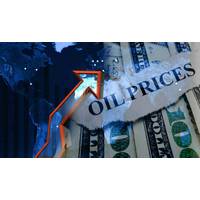Croatia Eyes Adriatic Oil Potential
Croatia to sign oil, gas exploration licences in June/July.
When Croatia announced in 2013 it would set a tender to explore for oil and gas in its pristine Adriatic waters, the government evoked the hydrocarbon riches of Norway to win over the plan's many detractors.
"If it's not dangerous for Norway or Scotland, it shouldn't be dangerous for us," Prime Minister Zoran Milanovic said in April, defending an effort he hopes could help turn around Croatia's economic fortunes after six years of recession.
Milanovic was responding to public concerns that the project is a high-risk gamble that may forever change the way of life on Croatia's more than 1,000 islands, hurt its lucrative tourism industry and harm the environment.
But with contracts expected to be signed with five selected concessionaires by July, opposition from local and international environmentalists, politicians and even pop stars -- expressed in the campaign "SOS for Adriatic" -- is only growing.
"It could be good if it means jobs for us on the platforms," admitted Ivan Dominis, who handles tourist yachts in a small marina on the island of Dugi Otok, near a site being eyed for drilling.
Although the oil rigs must be at least 10 km away from the mainland and 6 km from any island, Dominis remained concerned.
"It doesn't mean a disaster will happen, but only one incident is enough. We all live off tourism and fishing here. One spill and we'd never be able to clean the oil from the sea."
Dugi Otok sits near Croatia's Kornati national park, a nautical heaven of crystal clear waters strewn with dozens of small rocky islands and skirting one of the 10 planned areas of oil and gas exploration. Another area is near the famed medieval city of Dubrovnik.
Tourism in places like these has boosted Croatia's image since the country of 4.3 million people broke from Yugoslavia in 1991. In 2014, the year after Croatia became the newest member of European Union, 12 million visitors generated around seven billion euros in revenues, or around 17 percent of national output.
But that has not been enough to keep the economy growing. Output has contracted by 13 percent since 2009, driving up unemployment to almost 20 percent.
The government hopes the country's oil and gas potential can turn that around: preliminary studies suggest reasonably large amounts of natural gas in Croatia's northern Adriatic, where it is already extracted, and oil in the south.
In January, Croatia awarded ten oil and gas exploration licences: seven to a consortium of Houston-based Marathon Oil and Austria's OMV, two to INA, co-owned by Croatia and Hungary's MOL, and one to a consortium made up of Italy's ENI and London-based Medoilgas.
WEIGHING RISKS
Croatia produces around 600,000 tonnes of oil per year, barely 20 percent of its needs, and some two billion cubic metres of gas, or 66 percent of annual consumption. The government believes it can produce more, though how much more will only be known once exploration gets under way in the next three years, with exploitation not likely before 2019.
Similar plans are afoot in Adriatic neighbours Montenegro and Albania. Across the sea, Italy has been pumping oil and gas from the seabed for decades -- Italy extracted 521,742 tonnes of crude oil from the Adriatic in 2014, or 69 percent of its total offshore extraction.
Economy Minister Ivan Vrdoljak told Reuters the government was banking on around 1 billion euros ($1.12 billion) of investment and several thousand jobs in the first three to five years. Contracts with the chosen companies would likely be signed by July, Vrdoljak said.
Milanovic, whose job will be on the line in an election around the end of the year, says Croatia has a "patriotic duty" to determine what resources it has at its disposal.
The project also fits with Croatia's ambitions of becoming an energy power in the region, with plans also under way to build a liquefied natural gas terminal on the island of Krk. "Croatia still hasn't decided whether it wants to develop industry or live off its natural beauty," said Igor Dekanic, an oil engineering professor at Zagreb University, who supports the project.
"Realistically, I think the danger level is low and, if some quantities of hydrocarbons are found, the benefits will outweigh the risks," he said.
Critics appear determined to block the enterprise, no matter what the economic windfall might be.
Croatia's opposition green party, Orah (Walnut), plans to petition the government in June with demands for a new environmental study and a public debate, backed by the main opposition HDZ.
Greenpeace and other eco-groups also hope to force a binding referendum against drilling, although a government plan to change the rules on how to collect the necessary 400,000 signatures is likely to put up serious obstacles to its success.
Marathon Oil told Reuters it planned to talk to Croatian residents and politicians to assuage their fears.
"We've demonstrated our commitment to protecting the environment across our operations and through experience working offshore in the Gulf of Mexico, North Sea, offshore West Africa, offshore Alaska and other areas," it said in an emailed statement.
But Orah's leader, Mirela Holy, said the Adriatic could not be compared to the North Sea or Gulf of Mexico.
"The Adriatic is a shallow and closed sea," said Holy. "Just one disaster here and we could forget the entire economy in the coastal region."
One of Croatia's most popular singers, Oliver Dragojevic, said in March he felt compelled to speak out against the plan.
"We love our sea, we love to brag about it, let's not destroy it. We are a country of tourism, not of oil."
By Zoran Radosavljevic








